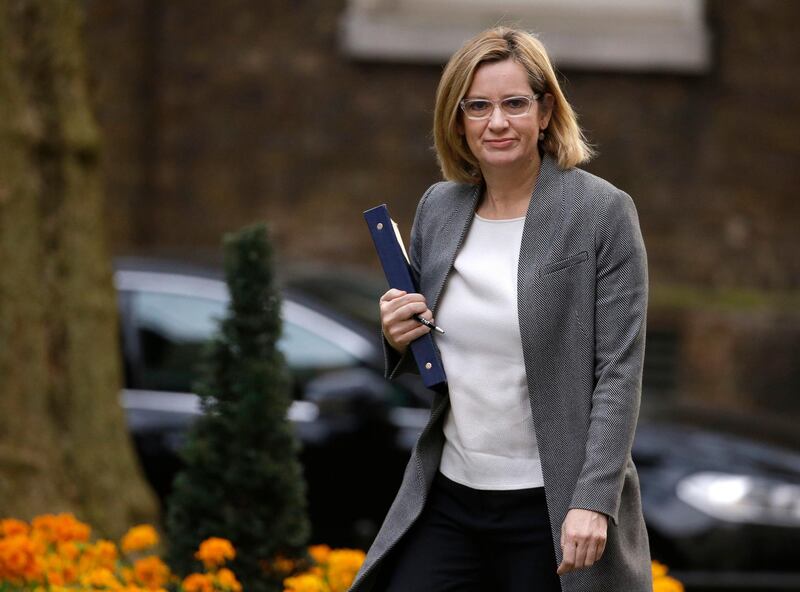The British government has revealed a new tool it claims can automatically detect terrorist content online and block it from being viewed.
The new technology is capable of detecting 94 per cent of ISIL's online propaganda with 99.995 per cent accuracy, according to ASI Data Science, the artificial intelligence company that developed the software.
Any content that the software is still unsure about would then be passed on for a human to review.
The goal is to stop the majority of video propaganda before it ever reaches the internet.
Announcing the new technology, home secretary Amber Rudd said it would help to “heavily disrupt the terrorists’ actions” and also prevent people’s exposure to “horrific images”.
“The purpose of these videos is to incite violence in our communities, recruit people to their cause, and attempt to spread fear in our society,” Ms Rudd said.
“This Government has been taking the lead worldwide in making sure that vile terrorist content is stamped out.”
Prime Minister Theresa May has repeatedly expressed concerns over the proliferation of extremist material online.
Following a string of deadly terrorist attacks in the UK last year , she announced a review of anti-terror laws saying that there had been "too much tolerance of extremism".
Mrs May has also frequently cajoled internet companies such as Facebook and Twitter to do more to prevent safe spaces online that allow extremism to proliferate.
_______________
Read more:
[ Britain must back region's fight against extremists, think tank reports ]
[ Tougher laws planned to tackle UK terrorism ]
[ UN Chief: Terror groups are winning online, even if they are losing territory ]
_______________
The new tool has been trained to spot extremist material using more than 1,000 ISIL videos. Using advanced machine learning, it analyses the audio and visuals of a video to determine whether it could be ISIL propaganda.
It can be used by any platform and across a range of video-streaming and download sites in real time.
How it works: the #AI tool developed by @ASIDataScience and @ukhomeoffice that can block Isis terrorist videos #TechAgainstTerror pic.twitter.com/3D8Odn7iMb
— Faculty (@faculty_ai) February 13, 2018
John Gibson, director of data science technology at ASI, told The National that the tool could easily be rolled out globally, including in the UAE.
"The model has been designed to be agnostic to the platforms that it's hosted on," he said. "It [extremist content online] is a genuinely global problem, and it's not a problem that dominant tech players can solve alone. So we're very keen that the tool is used as widely as possible."
He added: "If there are online hosting platforms in the Middle East that would like some help in terms of applying AI to detecting this content and getting it off their websites, then that's what it's for."
The tool is intended primarily to be used by smaller companies. While tech giants have been developing their own technology to tackle the problem, smaller platforms are increasingly targeted by ISIL and often do not have the same level of resources to develop technology.
Ms Rudd welcomed recent efforts by internet companies to ensure their platforms are not being abused by terrorist groups.
But she said: "There is still more to do, and I hope this new technology the Home Office has helped develop can support others to go further and faster."
The government also faces a challenge in predicting which platforms terrorists will turn to next. New Home Office research shows that 145 new platforms from July until the end of 2017 had not been used for terrorist content before.
Some people therefore argued that terrorists will simply find away around the new technology.
Charlie Beckett, a media professor at the London School of Economics, said the government's announcement "exemplifies the 'tools as solutions' problem".
He added: "Unless they are integrated cleverly into networks they don't mean much in fighting misinformation. Structures have to change. And the 'enemy' will always adapt."
This exemplifies the 'tools as solutions' problem. Unless they are integrated cleverly into networks they don't mean much in fighting misinformation. Structures have to change. And the 'enemy' will always adapt. https://t.co/wbuo3QNPTN
— Charlie Beckett (@CharlieBeckett) February 13, 2018
Ms Rudd is visiting Silicon Valley this week, where she will meet with US tech firms to discuss the new model as well as other means of tackling terrorist content online.
The home secretary will also meet with the Global Internet Forum to Counter Terrorism, which was launched last year in the aftermath of the Westminster Bridge attack that left five dead.






